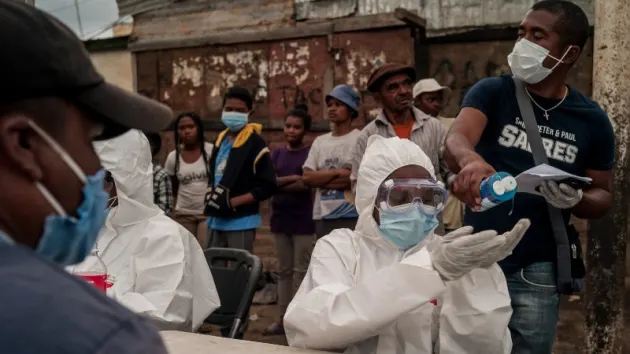COVID-19 has revealed a longstanding public health crisis, which is one aspect of a wider crisis of the dominant socio-economic model. This model has entailed systemic oppressions, commodification of health and care work, weakening of social protection, and fiscal austerity driven by neoliberal logics, undermining the realization of economic and social rights. Many government responses are not only prioritizing private interests over human rights, but also deepening historic inequalities and reinforcing intersecting oppressions. As stressed by Fundación Promoción Humana, “It shouldn’t be women who end up assuming the consequences of the crisis; this needs to become an opportunity for transformative change instead of a scenario of retrogression in the fulfillment of women’s rights”.
The pandemic doesn’t discriminate, but intersecting systems of oppression do. As emphasized by APWLD, “Women of all diversities bear the brunt of this crisis as they face multiple and intersecting discrimination, exclusion and violence. The effect of this public health crisis leading to — and was brought by — the interconnected economic, social and political crisis is becoming clearly evident, and the most marginalized communities are hit the hardest.” Similarly, AWID has observed how “the coronavirus-related racism, xenophobia, ableism and discrimination has shed a light on how health pandemics are […] ultimately a fight against culture and discriminatory systems.” Women also face higher risk of infection with COVID-19 due to being disproportionately represented among healthcare workers and/or in performing unpaid care work.
Gaps in social protection systems have translated into intensified care burdens for women, deepening the already unfair social distribution of unpaid care work, reinforcing patriarchal norms and increasing domestic violence. When states apply cuts to public services to redirect resources to address the pandemic, women’s unpaid work increases. Neoliberal capitalism has failed to deliver peoples’ basic needs, including access to quality public healthcare and universal social protection; as IWRAW-AP suggests, “Health services, compromised already in many countries by the austerity recommendations of international financial institutions, are under remarkable strain.” School closures and social isolation measures are revealing “the absence of adequate support for care services” and reinforcing “patriarchal, gendered norms of unpaid care work,” as many public goods and services have been “a target of ‘profit making’ and subsequently privatized” via IMF and World Bank structural adjustment programs, as stressed by APWLD. In turn, IWRAW-AP notes, “There is recognition of what kind of work really matters, the work that has been always given for granted.” Many members have also highlighted increased incidents of domestic violence and challenges in seeking remedy amid social isolation measures, as well as violence and harassment against women working in the healthcare sector.
